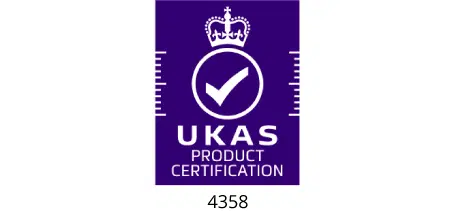Air source heat pumps are becoming more popular, especially with people looking for eco-friendly home heating options.
As the cost of traditional energy like gas, coal, oil, and LPG rises, more people choose air-source heat pumps as a sustainable and safe way to heat their homes.
While heat pumps have been around for some time, only some know how they work to turn air into heat for homes.
If you’re considering getting an air-source heat pump, you might have questions about how air-source heat pumps work.
This post will provide plenty of information about this low-carbon heating option, including its pros and cons, to help you decide.
Air Source Heat Pump: What You Need To Know
An air source heat pump, also known as an air-to-water heat pump, is a heating system that takes heat from the outside air and uses it to warm water.
This heated water can then be used to provide warmth to your home via radiators or underfloor heating, and it can also supply hot water for showers, taps, and baths.
Using an air-source heat pump is a renewable and cost-efficient way to heat your home.
Unlike gas and oil boilers that produce high-temperature heat, air-source heat pumps provide lower-temperature heat, meaning they might need to run longer to warm your home comfortably.
These pumps work by absorbing heat from the outside air, even in freezing temperatures, and transferring it inside your home.
For every unit of electricity they use, they can produce up to four times that amount of heat for your radiators and hot water.
To get the most out of an air-source heat pump, it is essential to have proper insulation in your home. The heat can escape without it, and your home might not get warm enough.
If you’re currently using an expensive heating system such as electric heaters, oil, LPG, or coal, switching to an air-source heat pump could help you save on heating costs over time.
The Science Behind How Air-Source Heat Pumps Work
Air-sourced heat pumps work in a similar way to fridges but in reverse. They bring heat from outside into your home using electricity.
An air source heat pump pulls in heat from the air and raises its temperature with a compressor. This heat is then transferred to your home’s heating system.
The pump pulls outside air over refrigerant-filled tubes, which are very cold (about -28°C) and absorb heat from the air.
The gas is then compressed, increasing its pressure and temperature, and turns into a hot liquid.
This liquid heats water for your radiators and taps in a heat exchanger. The refrigerant then cools down, turns back into a gas, and the cycle repeats.
Air source heat pumps are electrically powered and highly efficient. They can produce up to 4 kWh of heat annually for every 1 kWh of electricity used.
Although they work at a lower temperature than gas or oil boilers, they provide steady, gentle heat over more extended periods rather than quick bursts of heat. This means your radiators won’t feel as hot.
The external units of monobloc and split heat pumps have a similar appearance and produce noise due to large fans moving air.
Typically, the noise level is similar to that of a fridge when standing close by, enabling easy conversation without raising one’s voice.
The noise level may increase slightly in colder weather, but one can still communicate comfortably, albeit perhaps a bit louder.
On the other hand, the internal unit of a split system that contains valves and pumps operates very quietly.

Benefits of Installing Air-Source Heat Pumps
Air source heat pumps are a popular heating option in the UK because of their efficiency. They have a coefficient of performance of 3.0, which means they generate 3kW of heat for every 1kW of energy used.
For this reason, they are over a hundred times more efficient than traditional heating systems like LPG, oil, and gas boilers. However, their energy efficiency may vary, especially during winter.
In fact, air source heat pumps can be up to 4 times more efficient than traditional heating systems. It is a sustainable heating option, especially since there will be a ban on gas boilers in new buildings by 2025 and all installations by 2035.
Installing an air source heat pump has benefits such as a new hot water tank, upgrading radiators, and smart controls.
They are low-maintenance and can last for over 15 years, but we recommend having them professionally serviced annually to maintain the warranty and ensure optimal performance.
If you reside in England or Wales, you can apply for a grant of £7,500 through the Boiler Upgrade Scheme to help with the cost of installing an air source heat pump, applicable before the end of March 2028.
Final Thoughts
Switching to an air-source heat pump system can offer an efficient and eco-friendly alternative for your home’s heating and cooling needs.
The system extracts heat from the outside air and transfers it inside, providing warmth during colder months and offering a cooling option in the summer.
At ECOfootprint Limited, we specialise in the professional installation of air-source heat pumps in Doncaster and Northern England.
Our expert installation partners will ensure your heat pump integrates smoothly and effectively with your existing heating and cooling systems.
We understand that transitioning to new technology can seem daunting, so we provide all the necessary information and support to make an informed decision.
Whether you want to lower your energy bills, reduce your carbon footprint, or regulate your home’s temperature more efficiently, an air-source heat pump could be the ideal solution.
Contact us for a free, no-obligation quote to explore the benefits of air-source heat pump technology for your home.
We will assess your needs to avail of grants and provide a tailored solution that aligns with your home’s requirements and personal preferences.
Take the first step towards a more sustainable and comfortable home environment with ECOfootprint Limited.










